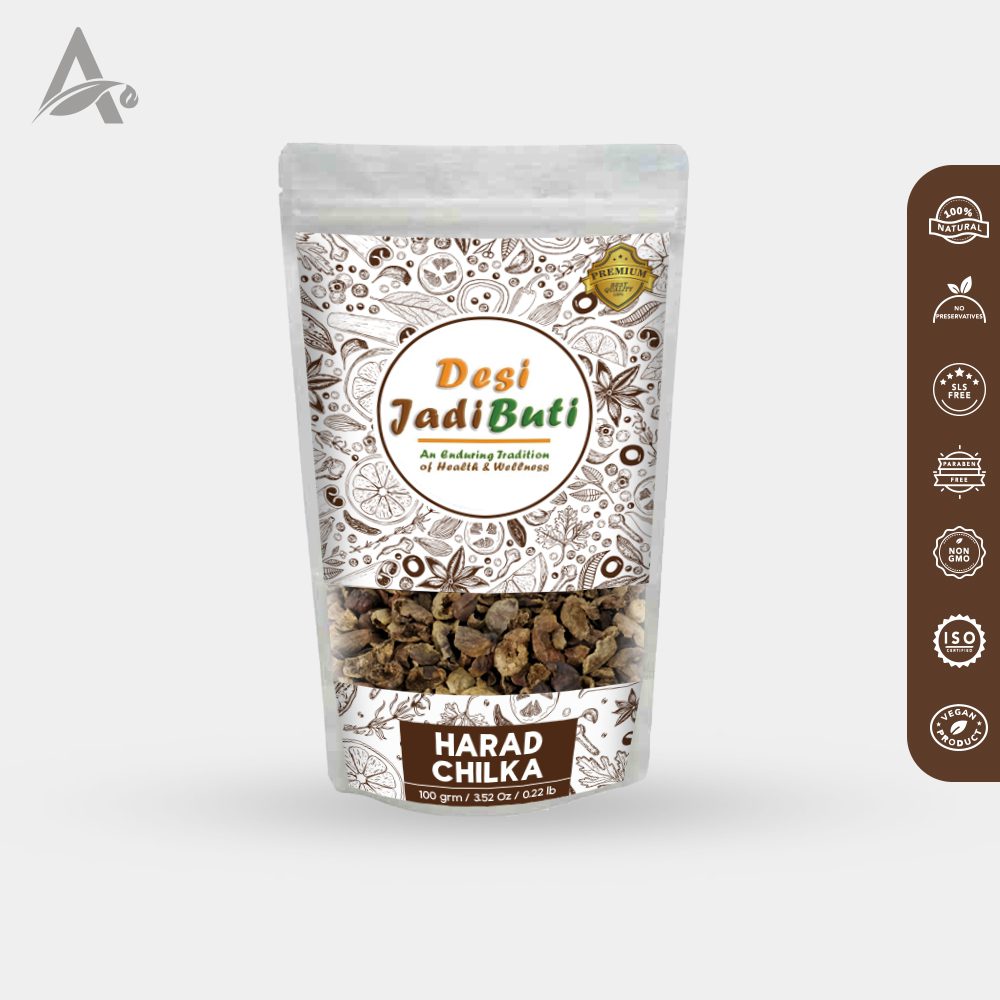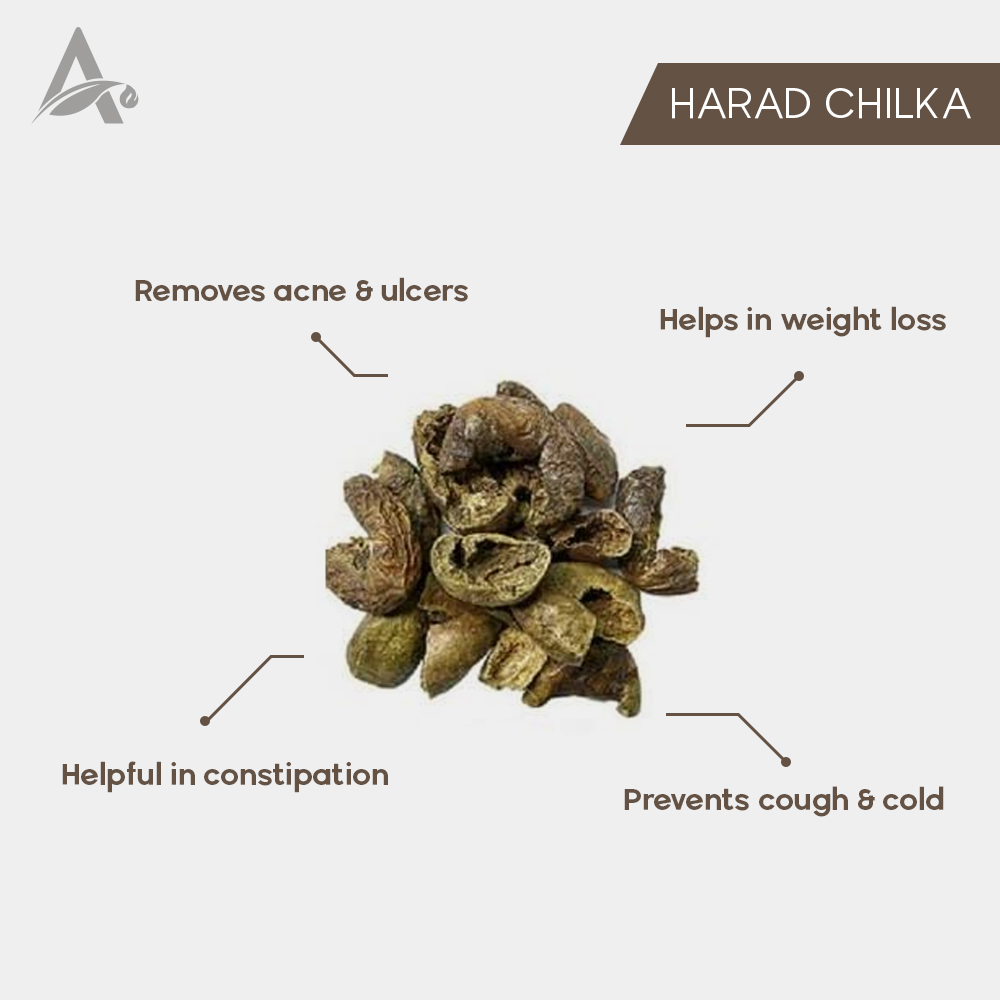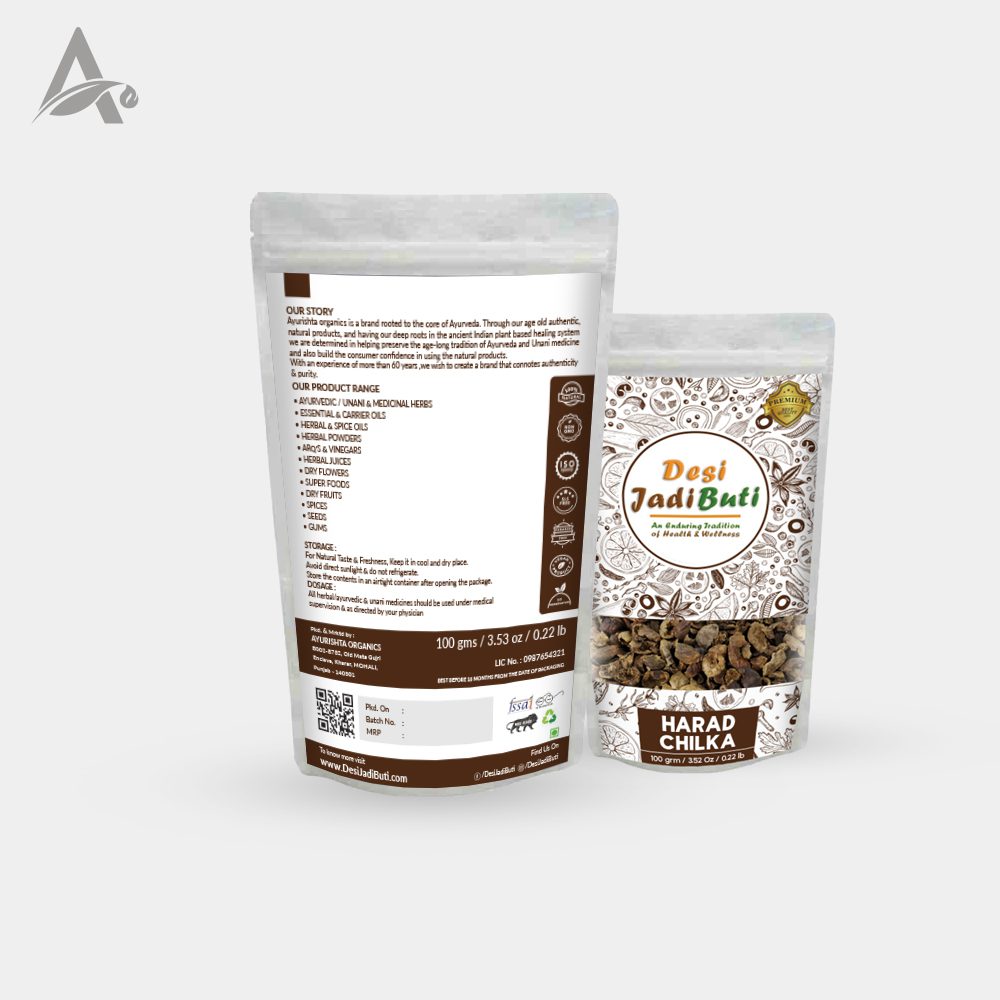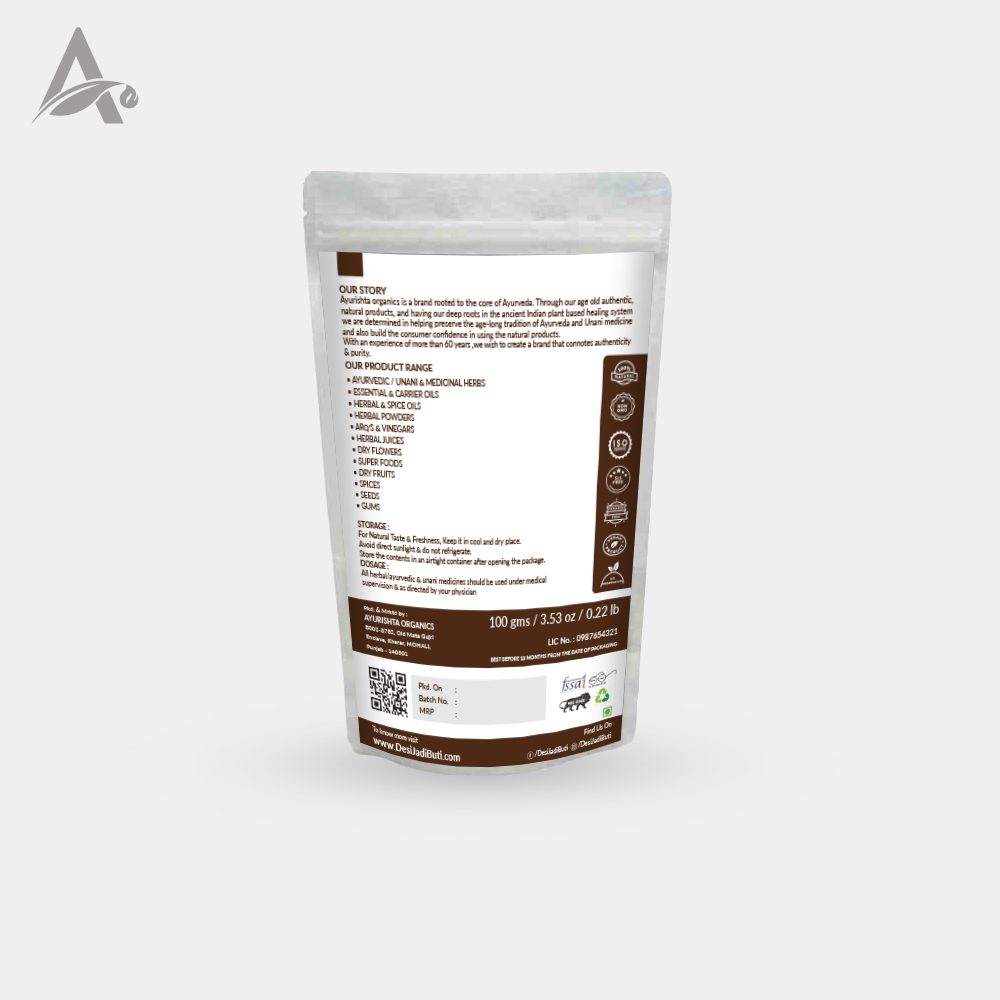Haritaki is also called Harad. Seven types of Haritaki are described in the Nighantu. Depending on the form, it has seven castes – Vijaya, Rohini, Putana, Amrita, Abhaya, Jeevanti and Chetki but at present it is available only in three types. Which people believe to be the fruit of a single tree by distinction.
By the way Haritaki is found everywhere. Perhaps Harad is a medicinal tree with many qualities. Harad is a tall, medium-sized, branching tree up to 24–30 m . Its leaves are simple, shiny, elliptical and spear shaped. Its fruits are elliptical or spherical, 1.8–3.0 cm in diameter or diameter and yellow to orange-brown in ripe state. Five lines are found on the back of the fruit.
Benefits:
Helps us in preventing and curing the following:
- Badi Harad is a very effective Medicine used for curing constipation. One tsp of Harad Powder at night with luke water cures and even prevents constipation.
- The paste of Harad is used in case of inflammation and pain.
- Problems related to Spleen can be cured by Harad.
- It even improves the eyesight of a person.
- It is also used in cardiac problems and blood disorders
Other Names:
Haleelaj, Ahleelaj, Ihleelaj, Haritaki, Hora, He zi, Chebulic Myrobalan, Bad amier Chébule, Myrobalan chébule, Chebulische Myrobalane, Hirdo, Himaja, Pilo-Harda, Hardo, Harad, Har, Anelekai, Har, Halela, Terminalia chebula Retz, Hirda, Haritaki, Harda, Hireda, Halela, Harar, Haser.
Safety Information:
- For Natural Taste & Freshness, Keep it in cool and dry place.
- Avoid direct Sunlight & Do not Refrigerate.
- Store the contents in an Airtight Container after opening the package.
- All herbal medicine should be used under Medical Supervision only.






























































































Reviews
There are no reviews yet.